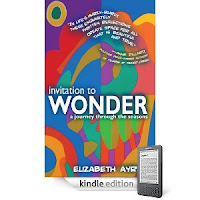 |
| Covenant as Ethical Commonwealth |
Educator, cultural observer and lecturer Perry Huesmann has authored Covenant as Ethical Commonwealth, published by Italian Paths of Culture Press, on the concept of covenant and the possibilities for trust in society. In this guest post, Perry discusses what went into the writing of the book and the process of publication.
AA: What is the background for the book?
 |
| Author Perry Huesmann |
AA: What inspired you to select this particular topic?
PH: I was especially intrigued by the philosophical implications of the Enlightenment project as it relates to the place of the individual in society. The problem arises when the Cartesian trajectory of the individual as determiner and guarantor of reality takes root at a societal level. The implications are rather serious.
AA: What insights did you glean about the creative process while writing it?
PH: There are numerous writing styles, and some are appropriate for some projects and others are not. I would say that a work that is philosophical can tend to suffocate some aspects of creativity. While precision and accuracy of thought are highly important, there is room for creativity in how one organizes the material and presents it to the reader. I enjoy writing, and so attempted to write as if I were speaking to a group in front of me. This always helps me write in a way that is understandable and accessible.
AA: What did you learn about the publishing process, particularly as it relates to working with an international, print-on-demand publisher like Italian Paths of Culture Press?
PH: As is the case for all authors, the challenge is getting the word out about the book. Print-on-demand has advantages in cost-savings on the front end, but one must realize going in that marketing and distribution are clearly a large challenge. It is important to get exposure through book reviews, interviews, articles, etc., so that the book can be known. I think it is important to use all possible networking to help this process.
AA: Do you have another book planned?
PH: I am currently in a Ph.D. program with the same faculty, and my research essentially is looking at the philosophical framework for social relations in the 21st-century polis. What do we consider the polis today? Where does man meet, form and sustain social relations, and how are they characterized? The 20th century has been characterized by collectivism and individualism, and it seems we have no other alternatives. I am exploring one that is rooted in the Jewish concept of covenant.
AA: What would you do differently during the writing and/or publishing process the next time around?
PH: I think I would be a bit less technical in my style, and seek to be a bit more narrative. It renders the content more accessible and readable.
AA: Anything you'd like to add?
PH: Thank you for the opportunity to present the book, and if anyone is interested in reading it and interacting with it, I would enjoy that immensely. I am a strong believer in the need for humans to seek out others who have very different ideas, and be forced to understand them and respond to them in a respectful and mature way. This is central to our human experience, and enriching for our culture. I see this as central to the Judeo-Christian faith experience as well.
Perry Huesmann is an educator, a cultural observer and a lecturer who lives and works in greater Milan, Italy. He has worked as a corporate instructor of English, and holds a Master's degree in theology. He has a Master of Arts in science and society from the Free University of Amsterdam and is pursuing a Ph.D. there. To order the visit Italian Paths of Culture Press or Amazon, Covenant as Ethical Commonwealth.




